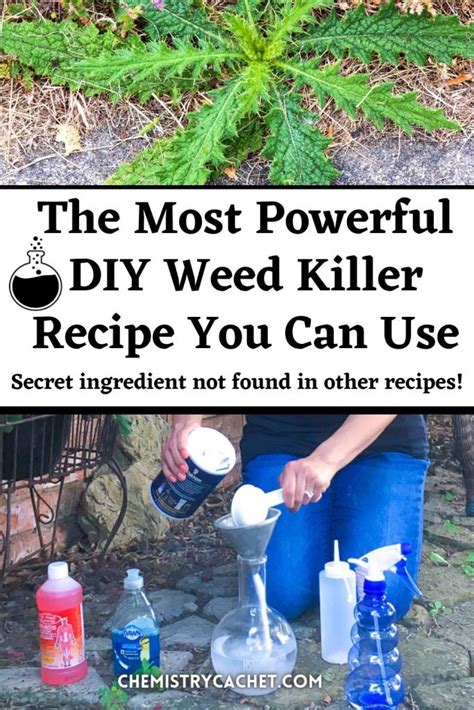Homemade Weed Killer Recipes: Safe and Effective Options for Your Garden
Are you tired of battling weeds in your garden? Store-bought weed killers can be expensive and harsh on the environment. Luckily, there are several effective and eco-friendly homemade weed killer recipes you can easily make at home using readily available ingredients. This guide will explore some of the best options, focusing on their effectiveness, safety, and environmental impact. We'll also cover important safety precautions to ensure you protect yourself and your garden.
Why Choose Homemade Weed Killers?
Commercial weed killers often contain harsh chemicals that can harm beneficial insects, pets, and even humans. These chemicals can also contaminate soil and water sources. Homemade weed killers offer a safer, more sustainable alternative, utilizing natural ingredients to control weeds without the negative environmental consequences. They're also generally more affordable than store-bought options.
Effective Homemade Weed Killer Recipes:
Here are a few effective recipes you can try:
1. Boiling Water Method: The Simplest Solution
This method is incredibly simple and effective for small patches of weeds, particularly annual weeds.
- What you need: Boiling water and a kettle or pot.
- How to: Carefully pour boiling water directly onto the weeds, ensuring you saturate the leaves and stems. This will kill the weeds by essentially cooking them.
- Effectiveness: Excellent for small areas and annual weeds. Not as effective for established perennial weeds.
- Safety: Use caution when handling boiling water; wear gloves to avoid burns.
2. Vinegar Weed Killer: A Natural and Powerful Option
Vinegar is a natural herbicide that effectively kills weeds by disrupting their cellular processes.
- What you need: White vinegar (5% acidity or higher), optional: dish soap (a few drops to help the vinegar adhere to the leaves)
- How to: Fill a spray bottle with white vinegar. Add a few drops of dish soap (optional). Spray directly onto the weeds, ensuring thorough coverage. Reapply as needed.
- Effectiveness: Effective on a variety of weeds, especially annuals. May require repeated applications for stubborn perennial weeds.
- Safety: Vinegar can be corrosive, so wear gloves and eye protection when using it. Avoid spraying on desirable plants.
3. Salt and Vinegar Weed Killer: A Stronger Formula
This combination creates a stronger weed killer than vinegar alone, suitable for tougher weeds. However, remember that salt can harm the soil, so use this method sparingly and avoid using it near desirable plants.
- What you need: White vinegar, salt (granulated or Epsom salt).
- How to: Mix 1 cup of salt into 1 gallon of white vinegar. Stir until the salt dissolves. Pour into a spray bottle and apply to the weeds.
- Effectiveness: More effective than vinegar alone, especially on persistent weeds.
- Safety: Wear gloves and eye protection. Avoid spraying on desirable plants or near areas where the salt could leach into the soil and harm surrounding vegetation. This method is best suited for driveways or paths where soil health isn’t a concern.
Important Considerations and Safety Precautions:
- Target Specific Weeds: Identify the type of weed you're dealing with before applying any treatment. Different weeds may require different approaches.
- Test in an Inconspicuous Area: Before applying any homemade weed killer to a large area, test it on a small, inconspicuous patch to ensure it doesn't harm desirable plants.
- Protective Gear: Always wear protective gloves and eye protection when handling weed killers, homemade or otherwise.
- Environmental Impact: While homemade weed killers are generally safer than commercial options, it's still important to be mindful of their environmental impact. Avoid over-application and consider the long-term effects on soil and water.
- Persistence: Some weeds may require multiple applications to fully eliminate. Be patient and consistent with your chosen method.
By employing these homemade weed killer recipes and following the safety precautions, you can effectively manage weeds in your garden while minimizing harm to the environment and your health. Remember, prevention is key. Mulching and regular weeding can help prevent weed growth in the first place.
